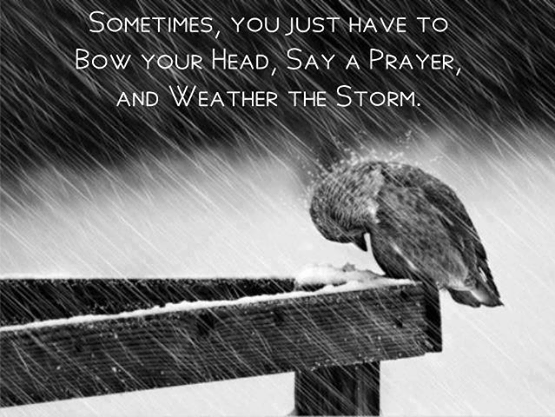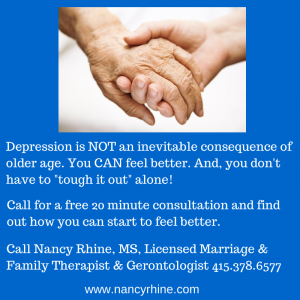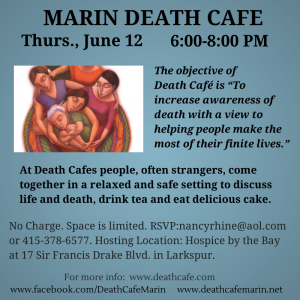aging
Older Adults & Psychedelic-Assisted Psychotherapy
As a longtime psychotherapist and specialist in the field of aging, it has been exciting to follow the groundbreaking research being conducted by institutions such as the Johns Hopkins Center for Psychedelic and Consciousness Research and the NYU Center for Psychedelic Medicine at the NYU Langone Department of Psychiatry. Many more studies are being conducted and research published throughout the USA, Canada, and Great Britain about the positive results experienced by patients in these studies.
 One article, among so many, about the Johns Hopkins research is entitled “Hallucinogenic Drug Psilocybin Eases Existential Anxiety in People With Life-Threatening Cancer“. “In a small double-blind study, Johns Hopkins researchers report that a substantial majority of people suffering cancer-related anxiety or depression found considerable relief for up to six months from a single large dose of psilocybin — the active compound in hallucinogenic “magic mushrooms.”
One article, among so many, about the Johns Hopkins research is entitled “Hallucinogenic Drug Psilocybin Eases Existential Anxiety in People With Life-Threatening Cancer“. “In a small double-blind study, Johns Hopkins researchers report that a substantial majority of people suffering cancer-related anxiety or depression found considerable relief for up to six months from a single large dose of psilocybin — the active compound in hallucinogenic “magic mushrooms.”
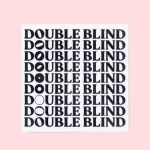 In another article, again among so many, is from the biannual print magazine and media company Double Blind which covers the expansion of psychedelics around the globe. The article is entitled “Can Psychedelics Help Us Face Our Fear of Death?”“After coming to a halt in the late 1970s, the study of psychedelic therapy for end-of-life anxiety was eventually resumed by investigators at UCLA, NYU, and Johns Hopkins, among others, and continues to this day. … Even without a fatal illness, every one of us has a terminal diagnosis—death—and anxiety over its inevitability is the ultimate existential crisis. Whether we approach our inevitable demise with fear and angst, spiritual reverence, or simply a healthy curiosity, there is strong evidence that psychedelic therapy can help us reach that milestone with equanimity and grace.”
In another article, again among so many, is from the biannual print magazine and media company Double Blind which covers the expansion of psychedelics around the globe. The article is entitled “Can Psychedelics Help Us Face Our Fear of Death?”“After coming to a halt in the late 1970s, the study of psychedelic therapy for end-of-life anxiety was eventually resumed by investigators at UCLA, NYU, and Johns Hopkins, among others, and continues to this day. … Even without a fatal illness, every one of us has a terminal diagnosis—death—and anxiety over its inevitability is the ultimate existential crisis. Whether we approach our inevitable demise with fear and angst, spiritual reverence, or simply a healthy curiosity, there is strong evidence that psychedelic therapy can help us reach that milestone with equanimity and grace.”
 A few months ago, I was interviewed by the website Psychedelic Support for an article entitled “Older Adults and Psychedelics“. Psychedelic Support is the leading online education and therapeutic platform in the psychedelic space advocating for mental health and well-being worldwide. “How can psychedelics play a role in healing for older adults? Guided and supported psychedelic experiences, with integration, typically create a fluid environment. In this environment individuals are able to soften their ego defenses or “armoring.” They are able to take a look at life experiences, challenges, and/or fears that they have compartmentalized or closed away over the years. We all have those experiences. With the help of a compassionate and competent psychotherapist and guide, many individuals are able to explore parts of themselves and their lives. They begin to develop new, wider perspectives that often include forgiveness of self and forgiveness of others. In older life, a healing process called “Life Review” naturally occurs when encouraged. This process can be greatly facilitated by psychedelic-assisted psychotherapy.”
A few months ago, I was interviewed by the website Psychedelic Support for an article entitled “Older Adults and Psychedelics“. Psychedelic Support is the leading online education and therapeutic platform in the psychedelic space advocating for mental health and well-being worldwide. “How can psychedelics play a role in healing for older adults? Guided and supported psychedelic experiences, with integration, typically create a fluid environment. In this environment individuals are able to soften their ego defenses or “armoring.” They are able to take a look at life experiences, challenges, and/or fears that they have compartmentalized or closed away over the years. We all have those experiences. With the help of a compassionate and competent psychotherapist and guide, many individuals are able to explore parts of themselves and their lives. They begin to develop new, wider perspectives that often include forgiveness of self and forgiveness of others. In older life, a healing process called “Life Review” naturally occurs when encouraged. This process can be greatly facilitated by psychedelic-assisted psychotherapy.”
To summarize, in our midlife and older years, there are many daunting challenges and rich opportunities that arise. We can dive in and explore our inner selves, make changes, and move forward in more balance, or we can lock up, try to resist parts of ourselves, and be in despair. It’s not black and white. But it is this profoundly important, I believe. Accessing altered states – through a variety of paths e.g. meditation, breathwork, vision quests, prayer, fasting, music, art, yoga, dance, and/or, for the right people, psychedelic-assisted psychotherapy – can unlock our hearts and minds and lead to great peace and creativity.
The Three P’s: Pride, Pleasure & Purpose
The Three P’s: Pride, Pleasure and Purpose
A Simple Guide for How to Avoid Chronic Depression in Older Life
 Recently a colleague told me about the “three P’s” which she teaches in workshops to older people. It’s such a simple yet helpful mantra to guide you in finding balance. Finding balance is one of your key developmental tasks in life, and especially so in older anastrozole years. Balance can help you avoid falling into chronic depression.
Recently a colleague told me about the “three P’s” which she teaches in workshops to older people. It’s such a simple yet helpful mantra to guide you in finding balance. Finding balance is one of your key developmental tasks in life, and especially so in older anastrozole years. Balance can help you avoid falling into chronic depression.
Older people are balancing provimed the combination of all of the life lessons they’ve been through, hopefully getting to some “wisdom” on and off at this point. Wisdom meaning, according to Joan Erikson PhD’s research a few years ago, “to know how to”.
They are balancing their anabolicstation.com growing needs for exercise, healthy eating, enough sleep, enough friends, enough mental stimulation, enough fun of various sorts that feeds their souls, enough contribution to the greater good, etc.
Which brings me back around to the “three P’s”. I would say that the Pride part is something a lot of my clients feel pretty good about. They are oftentimes proud of their careers or their families, or their contribution to others. The Pleasure part is, on the other hand, something they are figuring out and beginning to understand they need more of. That pleasure is critical in helping them find enjoyment in older years because it helps balance out the increasing number of challenges inherent in aging. Sometimes we brainstorm about what used to give them pleasure, what gives them pleasure now, and what they might like to try in the future given their capabilities at this point in their lives.
Pleasure is usually connoted by something that feels good visually, sound-wise, smell-wise, taste-wise and touch-wise. It also encompasses doing new things because the brain loves novelty.
The trick is to find “just enough” like in the Goldilocks story – not too much, not too, not too scary, not too bland. You get the gist.
That brings up the other “P” which is Purpose. This I see as one of the most difficult challenges for older people. Many of my clients have felt clear purpose in their earlier years – e.g. raising their children, helping with their grandchildren, serving on Boards in their communities or doing other volunteer work, working at their careers, being successful in a whole manner of ways.
Now, though, they may not be working their last paying careers. They may not be needed to watch grandchildren who are getting older and more independent. They may not feel able to commit to structured schedules in a volunteer or paid part-time job. They also may feel that they have offered to share their lifetime of accumulated, and valuable knowledge with groups, businesses, organizations, schools, etc. and felt that they were ignored or rebuffed. They feel “adrift”
This brings up the subject, then, of grief. Loss of earlier identities, loss of income, loss of value by others for their wisdom, loss of a clear path, and loss of groups of friends one makes in work-related settings.
However, the way through this, is to first acknowledge this grief. To also acknowledge that we live in an ageist society that does not typically value our elders. Our older people’s voices are too often not sought out, and not listened to, and not respected.
As they educate ourselves about ageism in our society and get support for the grief that all of these aspects engender, they begin to be able to lift their heads up above this and take a look around for where they might have purpose now in their lives.
 Often they come around to asking the questions: Where am I helping someone? Who is in worse or different shape than I am that I can help and who would appreciate some attention? Can I volunteer in a hospital holding preemies, can I volunteer in an assisted living community, how about in a library or a nonprofit thrift shop? Can I volunteer taking care of a pet for someone? Can I visit a home-bound neighbor who is lonely? There are so many people in need in our country and so many understaffed nonprofits trying to help.
Often they come around to asking the questions: Where am I helping someone? Who is in worse or different shape than I am that I can help and who would appreciate some attention? Can I volunteer in a hospital holding preemies, can I volunteer in an assisted living community, how about in a library or a nonprofit thrift shop? Can I volunteer taking care of a pet for someone? Can I visit a home-bound neighbor who is lonely? There are so many people in need in our country and so many understaffed nonprofits trying to help.
The point is not *what* you do, but it’s about your sense of purpose. When you are thanked from the heart by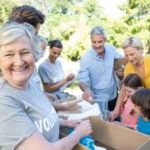 someone for something you do, you get more from the interchange than they do! This is something many volunteers say to be true – that they get more from being volunteers, they think, than the people they help.
someone for something you do, you get more from the interchange than they do! This is something many volunteers say to be true – that they get more from being volunteers, they think, than the people they help.
So, Pride, Pleasure, Purpose. A simple equation, so beautiful in its simplicity and truth.
Successful Aging Takes a Team!
Successful Aging Takes A Team!
Let’s talk about why it’s critical to their quality of life to have a strong support team around seniors who are growing older.
Why?
Because I see so many older people in my private practice who face, for example, situations where they are grappling with:
- family members or loved ones with very strong opinions about what is best for them – opinions danabol that may or may not be informed and wise
- *no* family members or close friends at all to advocate for them
- a primary care physician who is prescribing medications but not following them in after-care. What is known as the “diagnose and adios” routine.
- a specialist or two who is also prescribing – say for instance a cardiologist or endocrinologist – but who is not tracking the interaction of *all* of the medications involved
- a psychiatrist who may be also be treating and prescribing psychiatric medications
- possibly a nutritionist, alternative health practitioner or two prescribing supplements, vitamins and minerals which may all be fine but which also carry side effects that can contribute to mood problems.
Way more often than not, there is very little, if any, communication and coordination amongst the health professionals. This coordinator function may have been done in the past by the primary care doc who managed the broad perspective overview of how each of his patients were doing. But nowadays primary docs are under so much time pressure in their practices that they just do not have time take on this role.
In order to build that coordinated team which will support an individual’s successful aging, it takes someone stepping into the role of being a skilled ADVOCATE. A person who knows how to coordinate effective communication amongst team members and who is in charge of reaching out on behalf of the patient to represent their concerns. Someone who can help the patient communicate their concerns and questions to other team members, and who also helps the patient remember the answers and instructions of doctors. Team members need to work in concert with each other, supporting the various lens through which each patient is viewed.
All of this process needs to be done with the utmost RESPECT for each patient where the patient has TRUST in the advocate that he or she is representing the wishes of the patient towards the goal of the best possible quality of life at any stage.
Gerontologists and mental health professionals who understand the importance of building good communication and coordination amongst care teams can be invaluable to the patient and family. Sometimes, it is care managers who provide this role, sometimes it’s an adult child, and sometimes it’s gerontological counselor.
Whoever it is that takes the lead in this role, a support team that is identified, built, coordinated and in good communication, will result in a patient who is much more likely to thrive and much less likely to fall through the cracks.
This is the health care situation for older people in our country today. Just the facts. And totally doable to navigate through it successfully. With help. With a solid, caring team.
Why Gerontological Counseling for Older People & Their Families?
Why Does Gerontological Counseling Yield the Most Effective Healing?
If you or your loved one is a senior, the counselor you or she sees absolutely, in my opinion, needs to be up to date on the latest research involving aging.
Take, for example, the topic of brain neuroplasticity and neurogenesis. Why is it critical to know about this when counseling older people? Because, not even 10 years ago in graduate psychology programs around the country, interns were taught that brains decline from age 30 on! That things were was all “downhill” – brain cells wise – from there. The explosion of current, ground-breaking brain research that we’re seeing absolutely refutes this dire and incorrect belief. Not only is that attitude false, it is anti-healing!
Our brains are changing all the time. This is called neurogenesis. It happens until our very last breath. In order to support good brain health, we need to provide some basic tools such as good nutrition, limiting sugar and processed carbs, making sure we get plenty of daily exercise, not smoking, reducing environmental toxins, decreasing stress as much as possible, practicing good mental health habits/practices, staying involved socially with family and friends, making sure we take the appropriate supplements, vitamins and minerals, etc.
When I studied psychology as a graduate student, I learned about Eric and Joan Erikson’s famous Stages of Human Development. They had first published their theories and discoveries when they themselves were very young. As they grew older they realized what the research is showing now. That is, that the years from midlife to 90 years old and up are full of rich experiences, new discoveries, and constant evolution. As Eric and Joan moved through their 60’s, 70’s, 80’s and 90’s, they abashedly apologized for making ill informed assumptions that our brains basically stagnate after a certain age.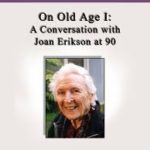
Now, I am not saying that our memories or that the way we think doesn’t change. We all experience what is called age-related cognitive change as we grow older. That is most often because we have so much more data in the “hard drives” of our brains! We can also suffer from ill health of various sorts, inflammatory conditions that affect our thinking, the side effects of medications that can impact us negatively, and depression and anxiety that can also cause foggy thinking. It’s important to approach conditions like these from a looking at the whole person approach to see what the underlying root problems may be.
The important thing to realize is that it is wrong to believe that older age inevitably leads to bleak depression and cognitive decline. Rather, we can and do grow into wisdom and the ability to cut through the chaff to the gist of what is needed to thrive. In fact, the root meaning of word wisdom, Joan Erikson wrote, is “to know how to”.
I’ll end by saying that too often I hear therapists say that they see anybody, that people are all the same. I think we may be similar but I know, without a doubt from my years of professional practice and my life experience, that the issues we face in older years are different and often far more complex, multi-layered and nuanced than when we are young. Plus, our American culture adds an often-harmful overlay of ageism to the mix.
Therapy with a gerontological counselor can help you get more quickly to the root of what is happening with you and/or your loved one and is up-to-date on other resources that can help you get the attention, care and healing support you need.
Bringing Balance into Our Lives as We Grow Older
 As we get older, we are exposed to increasing loss and stressors. These can be deaths of loved ones and family members. Sometimes it’s illness, it may be chronic pain. Or watching people we care about encounter difficulties and running into more problems ourselves.
As we get older, we are exposed to increasing loss and stressors. These can be deaths of loved ones and family members. Sometimes it’s illness, it may be chronic pain. Or watching people we care about encounter difficulties and running into more problems ourselves.
Joan Erikson, the renowned psychologist and wife of psychologist Eric Erikson, talked about needing to let go of things as we climb up the hill of getting older. Old habits, old concerns, old worries, old ways of being – we have to start looking at those and discarding those that have become too heavy to continue to carry. She said:
“Everybody says it’s a good idea to lighten your load. It’s like walking up a hill. And then you realize that the load that you’re carrying is not worth the trouble, it’s not worth the strength that it takes to keep it with you. And you begin to just gladly drop this bit here and this bit here and be freer to get up that steep hill.”
This “purging” effect as one of my therapist friends calls it, involves letting go of a range of things. It can be not eating as much and therefore extra weight. It can be possessions which we have accumulated and carried around with us in our homes. Those possessions which seem to multiply by themselves and we look around finding ourselves surrounded by too many things. Time to let go!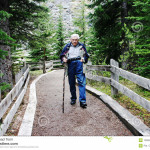
Sometimes it’s relationships we are looking at and letting go of. Old friends who were wonderful in one season of our lives may not feel nurturing or right anymore. This is not a blame and shame process. This is normal. Friends, colleagues and associates come and go. “Culling” and honing and winnowing are all practical terms having to do with earth and sometimes farming. They are good metaphors for how we are gardening through our lives.
To extend the metaphor, plants need room to grow and thrive. If they, or we, are too crowded, our growth is stymied. How much room we need as individual humans is a very personal journey and decision. It may differ at various times of our lives because numbers of relationships, too, have seasons.
A coping mechanism mentioned by many mental health practitioners and mindfulness teachers is bringing more of our attention to positive things in our lives. Big things, but also the small little day to day, hour to hour, minute to minute things that delight us. And by delight, I mean that bring light into our hearts. It might the sight of a beloved child, pet, the smell of a sweet sweet rose, the taste of something delicious, the feel of the warm sun on our face, the rays of sunshine filtering down through tall trees, the sound of the ocean, etc.
Those enjoyments can help bring us balance in and of themselves, and *especially* so when we pause and savor them for more than a second. In fact, brain research has shown that it takes the brain at least *10 seconds* to take a momentary experience and be able to register it into memory. 20 or 30 seconds is better.
So, for starters, a simple thing to do to move towards balance is to take the time to notice positive experiences in our lives, note them with all of our senses where possible, and stay with them for a few seconds. A regular practice of this will attune our brain to noticing more of these experiences and help bring balance into our perspectives and lives. Simple and powerful at the same time.
Ageism in Modern America
While cruising Facebook this morning I came across an article posted by Paula Span, an author I respect so much for her insightful blog posts when she was featured as the writer for The New Old Age for the NY Times. Out of a budget cut, her weekly blog was cut but she still writes for the Times sometime and posts on her FB page. Here is the link to the article she posted which was written by the chief of geriatrics at Columbia University: America’s Bias Against Older Women Must Stop
The article has to do with the flurry of ageist comments in the media lately having to do with Caitlin Jenner. Not comments so much that were disparaging about her transformation from Bruce to Caitlin but comments that were denigrating of older women. Demeaning comments, snide jokes, general put-down’s about older bodies, in particular older female bodies.
This topic and more importantly this phenomenon is so widespread and so ubiquitous in our culture that it is overwhelming when considered. And that overwhelm can easily lead to increased poor self esteem on the part of older women, denial and fighting against “aging” thus the billions spent on anti-aging products, and depression. I see this depression so very commonly in my counseling work with older women, espeically those in their 60’s and 70’s.
There is a common thread of complaints under the heading of ageism whether we use that word or not. The experience is of: being the butt of disparaging and cruel jokes, feeling devalued, ridiculed, infantalized and invisible. of not counting, that they don’t matter.
 I wonder about our fear of women and women’s power in this culture. We women do have some kind of power when we are young and beautiful. Perhaps that is instinct that we are attractive when we can procreate. Perhaps we are also considered more valuable then because we “consume” therefore Wall St and the media value us. That doesn’t make much sense tho’ when you consider that older women and older people in general are big consumers and oh by the way voters as well.
I wonder about our fear of women and women’s power in this culture. We women do have some kind of power when we are young and beautiful. Perhaps that is instinct that we are attractive when we can procreate. Perhaps we are also considered more valuable then because we “consume” therefore Wall St and the media value us. That doesn’t make much sense tho’ when you consider that older women and older people in general are big consumers and oh by the way voters as well.
No, there is something intrinsic and deeply rooted in why this culture devalues older women to such an extent. More than they do older men although there is devaluing there too. Is it related to fear of mortality and fear of dying? Is it the fear of becoming superfluous and needy? We know that our culture puts huge emphasis on independence and me-ness. Cross interdependence is not a big part of our cultural tone. And/or does ageism towards older women have to do with latent resentment towards primary attachment figures who predominantly are mothers emerging later when our mothers or ourselves are now in a vulnerable position. Payback time in other words?
I believe that we lose out as a culture and a people when we do not value our older women and listen to what they have to teach us. Margaret Mead told a story about the old does of the red tail deer herds in Alaska. In times of drought or severe storms, it was the old does who had the memory of out of the way watering holes or sheltering cliff where they could find refuge from the storms. The herd rallied behind and old does towards safety.
I worry about this way we have of devaluing and demeaning our older women. We are in times of crisis. We need all the wisdom we can find. Denigrating and oppressing and discounting an entire segment of our population is anti-survival and anti-wisdom. I hope we can change. I hope that we boomers can push back against too-often-accept stereotyping and dismissing of older women. Our survival may just depend on it.
Aging, is and always has been, a team sport!
 I am a big fan of some of some of the leaders who I consider the pioneers in reshaping how we think of aging in this country. One was Dr. Robert Neil Butler, MD who first coined the word “ageism”, started the first geriatric medicine program in the country (at Mt Sinai Medical Center), was the first Director of the National Institute on Aging and won the Pulitzer Prize for his groundbreaking book on aging called “Why Survive? Being Old in America”. Sadly Dr Butler passed away in 2010. But he left us a legacy of his work.
I am a big fan of some of some of the leaders who I consider the pioneers in reshaping how we think of aging in this country. One was Dr. Robert Neil Butler, MD who first coined the word “ageism”, started the first geriatric medicine program in the country (at Mt Sinai Medical Center), was the first Director of the National Institute on Aging and won the Pulitzer Prize for his groundbreaking book on aging called “Why Survive? Being Old in America”. Sadly Dr Butler passed away in 2010. But he left us a legacy of his work.
Another leader who is still very active is Dr Bill Thomas, MD, geriatrician and a professor at the Erickson School at the University of Maryland, Baltimore County. He has founded two movements that aim to reshape nursing-home care: The Eden Alternative and the Green House Project. Dr. Thomas his wife developed the Eden Alternative in the early 1990’s as a bodybuilding-seriously.net philosophy to deinstitutionalize long term care facilities by alleviating the “three plagues” of boredom, helplessness and loneliness. In 2008, The Wall Street Journal named Dr. Thomas one of the 12 most influential Americans shaping aging in the 21st Century. US News and World Report described Dr. Thomas as a revolutionary, “With his startling common-sense ideas and his ability to persuade others to take a risk, this creative and wildly exuberant 46-year-old country doctor has become something of a culture changer–reimagining how Americans will approach aging in the 21st century.”
Here is a sample of some of Dr Thomas’s (for America) revolutionary statements on the plethora of dismal nursing homes in this country:
“One important way we can reduce the fear associated with communal living arrangements, and improve the lives of frail elders and their families, is to abolish nursing homes in America. Currently we have more nursing homes than Starbucks outlets. Our archipelago of institutional long-term care facilities houses 1.6 million elders and adults living with disabilities. Most of them are serving life sentences, stripped of privacy, independence and choice. Ironically, the buildings are aging even faster than the people in them. They won’t survive to house the coming boom of elders. Should we rebuild them, as thousands of developers are already doing, and subject another generation to the cruel embrace of the institution?
The fact that so many people, whose only crime is frailty, are confined in this way is powerful evidence that we live in a deeply ageist society. We dread aging because we associate growing older exclusively with disability, depression, dementia and death. In fact, old age is a complicated life stage with abundant opportunities for growth, joy, meaning and worth. Around the world and through the ages, elders have proven their value as peacemakers, storytellers and sages. They are the glue that holds families and communities together, and we need them now more than ever. “
He writes this in response to the fear that so many old people have about living in groups, and rightly so given the vast majority of the existing models. But, he says, as in the title of this blog post, AGING IS A TEAM SPORT! How I have described it, along these same lines, is that “It takes a village!”, stealing from Hilary Clinton’s old book title. I have seen this over and over, that the highest quality of life belongs to those older people who have a loving and competent circle of family, friends, caregivers, church members, health professionals, etc around them when they need them.
Older people nowadays want to stay home and “age in place”. This is understandable given the alternatives! It’s time for us to create warm, welcoming, vibrant group settings where individuals can have privacy and alone time for contemplation, and friendship and support and connection when they want that to. I’m sure we can figure this out. And we should because the boomers are fast coming down the aging track.
Dr Thomas has started the Green House Project, a new model aimed at creating a real home that provides care but also supports those seeking to redefine the worth and meaning of late life. With support from the Robert Wood Johnson Foundation, more than 100 Green House Project homes have opened in 32 states since 2003, and more than 100 others are in development.
The Sageness of the Serenity Prayer
In working with midlife and older age adults and their families for over a decade now, I have come to believe more and more in the eloquence and truth of the Serenity Prayer. I am not an AA member which is how, I think, most of us have heard of this prayer. But I have come to love it. It is written in large letters on a framed poster outside my office. More people have stopped on the way into a therapy session with me to stand before it and read it over and over. It creates an immediate opening for talking about what concerns people bring in to the session. For those of you who don’t know the prayer or don’t remember the words, it goes like this:
God, grant me the serenity to accept the things I cannot change,
The courage to change the things I can,
And the wisdom to know the difference.
In my counseling sessions, we remark on how we can often see a few things we can’t change. We can often see a few things we can change. Those ends of the continuum are fewer and seem more black and white. But it’s that middle section – that wide grey confusing amorphous middle ground, i.e. “the wisdom to know the difference” is often what challenges us the most and forms the basis for many a counseling session.
The photo below is one I found online that many of my people relate to. It speaks to how little we are in control of the elements in our lives, and that “the wisdom to know the difference” may just entail hunkering down, saying a prayer and riding out the storm.
Depression is NOT inevitable in older life.
 Our youth-oriented Western culture seems to tell us that we are all doomed to succumb to debilitating depression as an inevitable part of growing older. This is not true!
Our youth-oriented Western culture seems to tell us that we are all doomed to succumb to debilitating depression as an inevitable part of growing older. This is not true!
Sure, it is true that getting old “ain’t for sissies” as Bette  Davis famously put it. There are a myriad of challenges that confront us. Nobody would argue that! We know what those challenges are – all kinds of changes, losses of various sorts from little things to profound ones, aches and pains, the gamut.
Davis famously put it. There are a myriad of challenges that confront us. Nobody would argue that! We know what those challenges are – all kinds of changes, losses of various sorts from little things to profound ones, aches and pains, the gamut.
But, you can also thrive in later years. It’s about your mindset, your emotional and spiritual practices and your strong support network. The kids called support networks these days, their “posse”. Your posse can be made up of old and new friends, your peers, support group members, family, pets, counselors, trusted doctors and spiritual advisors.
Generally, people like you have an assortment of healthy, tried-and-true coping skills that have gotten you this far in your life. Perhaps now, however, you are encountering an accumulation of situations that tax those skills. It may be time to remember your old skills and to learn new ones. It may likely be time as well to rethink your life’s purpose. Purpose is key to keeping your mood up and your heart content.
What stands in the way? Well, too many times, that old Shame rears its head and tells you that you ought to be able to figure this out on your own, that you ought to be able to just “tough it out” and do it alone or else you’re weak. You can’t burden your children so what to do? As the blue box here says, don’t keep it bottled up inside!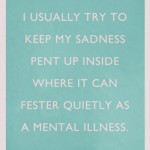
What people often don’t realize is that you are not alone in feeling challenged, stressed, confused, overwhelmed or anxious. These feelings surface when we are going through new phases and transitions in our lives. It’s during these times that it becomes so important to realize you don’t have to reinvent the wheel. There are many practices and tips for how to increase your enjoyment of life in older years.
The important thing is to not give up and figure that just depression goes with the territory. That may be what society tells you, it might be the prevailing attitude. But it is not true. Reach out for help. Counseling and support can turn your life around and help you reclaim your confidence, solid footing and peace of mind. Isn’t it worth a try? What have you got to lose!



